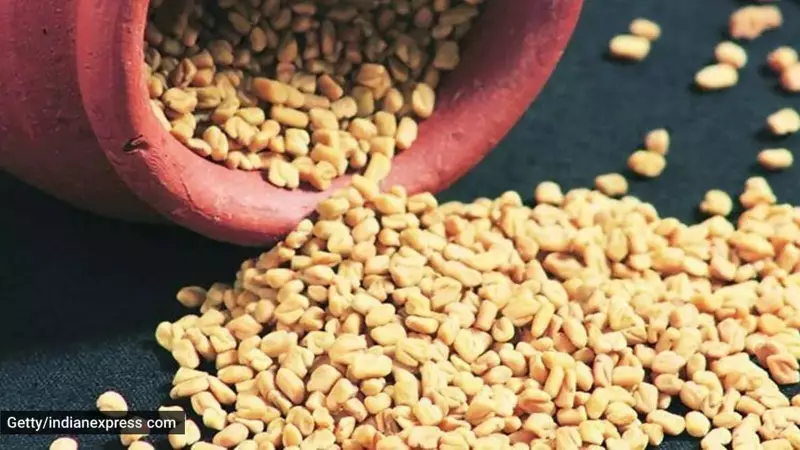
Have you ever noticed a curious maple syrup-like aroma coming from your body after consuming certain foods? This peculiar phenomenon has a fascinating explanation rooted in one of India's most cherished culinary ingredients.
The Maple Syrup Mystery Unveiled
Medical experts reveal that the distinctive sweet smell some people detect in their sweat or urine often traces back to fenugreek seeds, commonly known as methi in Indian households. Dr. Shrey Srivastav, Assistant Professor of Internal Medicine at Sharda Hospital, explains this intriguing connection.
"Fenugreek seeds contain a compound called sotolon, which is responsible for that characteristic maple syrup aroma," says Dr. Srivastav. "When your body metabolizes these seeds, the scent can manifest through perspiration and other bodily functions."
Beyond the Scent: Fenugreek's Health Powerhouse
While the maple syrup connection is fascinating, fenugreek's real magic lies in its impressive health benefits that have been valued in Ayurvedic medicine for centuries.
Weight Management Wonder
Fenugreek seeds are packed with galactomannan, a natural soluble fiber that expands in your stomach, creating a feeling of fullness. This helps control appetite and reduces overall calorie intake, making it an effective ally in weight management.
Cholesterol Control
Regular consumption of fenugreek has shown remarkable results in managing cholesterol levels. The soluble fiber binds to cholesterol particles in the digestive system, preventing their absorption and helping flush them out of the body.
Blood Sugar Regulation
For those managing diabetes, fenugreek offers significant benefits. The amino acid 4-hydroxyisoleucine in these seeds improves insulin sensitivity and helps regulate blood sugar levels naturally.
How to Incorporate Fenugreek Into Your Diet
Integrating this powerful seed into your daily routine is surprisingly simple:
- Soaked Seeds: Soak one teaspoon of fenugreek seeds overnight and consume them first thing in the morning
- Sprouted Magic: Sprout the seeds and add them to salads for a nutritional boost
- Traditional Touch: Use as a tempering in dals, curries, and vegetable preparations
- Tea Time: Brew fenugreek tea by steeping seeds in hot water
Expert Recommendations and Precautions
While fenugreek offers numerous health benefits, experts recommend starting with small quantities. "Begin with half a teaspoon daily and gradually increase to one teaspoon," advises Dr. Srivastav. "Excessive consumption may cause digestive discomfort in some individuals."
Pregnant women should consult their healthcare provider before adding significant amounts of fenugreek to their diet, as it may stimulate uterine contractions.
This humble seed, a staple in Indian kitchens for generations, proves that sometimes the most powerful health solutions are hiding in plain sight in our spice boxes. The next time you detect that sweet maple syrup scent, you'll know you're experiencing one of nature's most beneficial spices at work.





